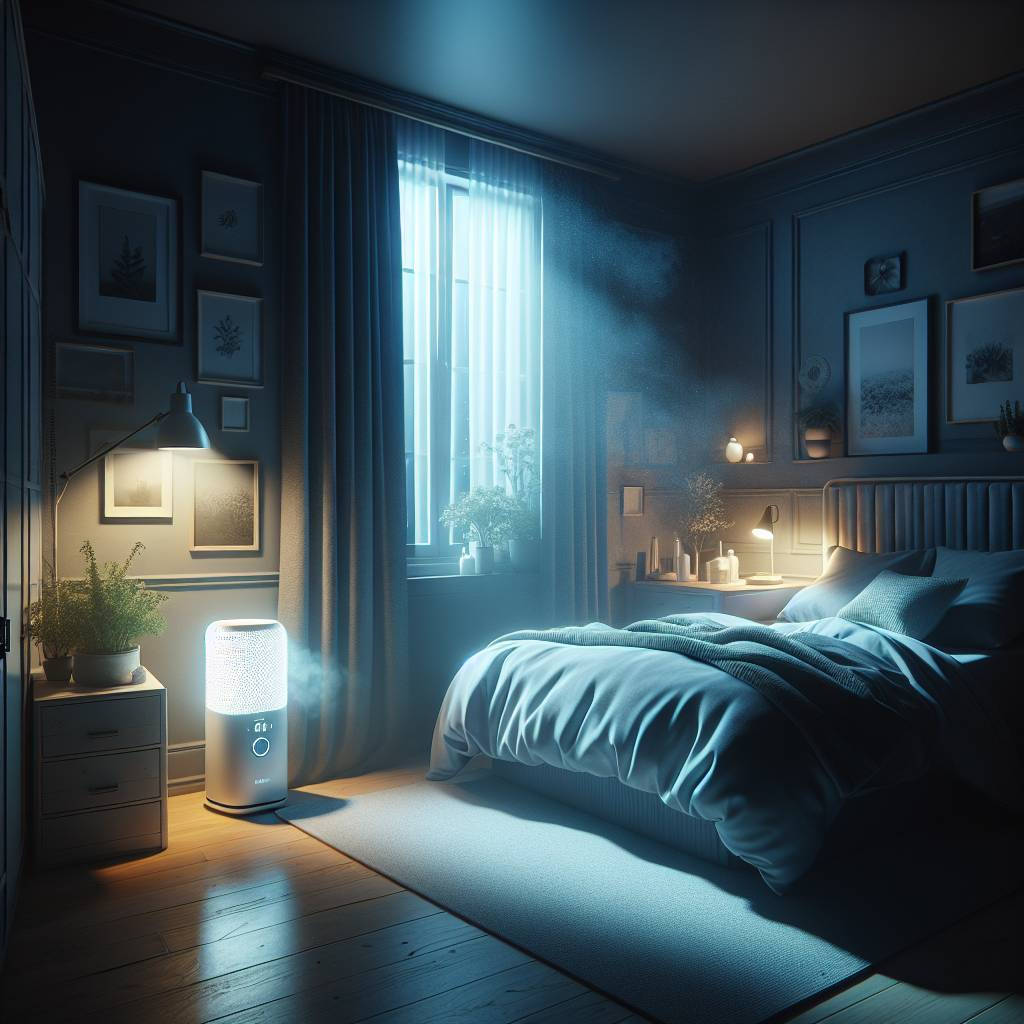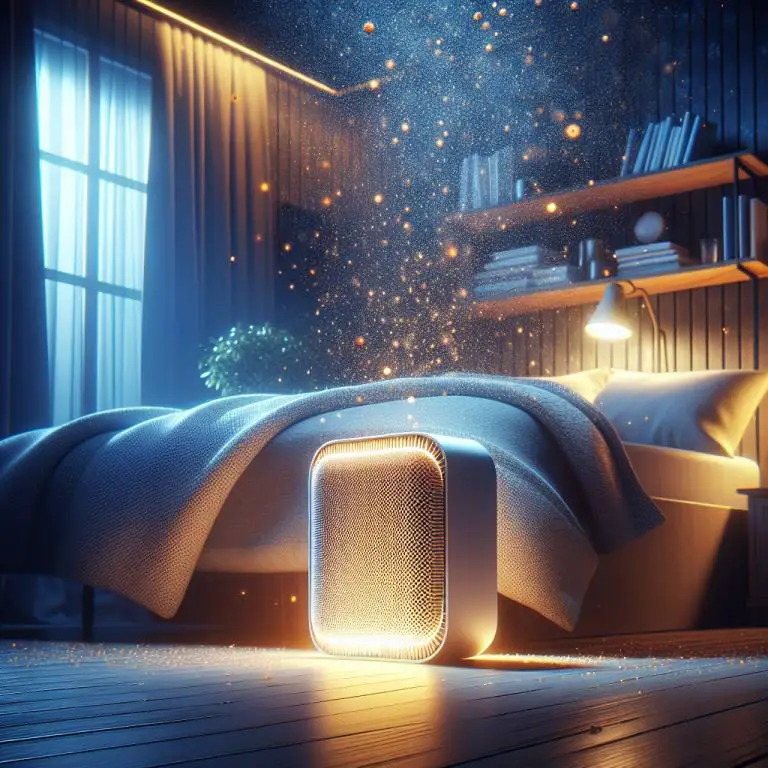Can Air Purifiers Reduce Asthma Attacks At Night?
Yes, air purifiers can help reduce asthma attacks at night. They work by cleaning the air of allergens like dust, pet dander, and pollen that can trigger asthma symptoms. By removing these triggers from your bedroom environment, an air purifier can make it easier for you to breathe and sleep better, thus helping to prevent nighttime asthma attacks.

Can air purifiers reduce asthma attacks at night?
Air purifiers have become a popular tool for individuals looking to manage their asthma symptoms, especially during the night. Many people find that their asthma worsens at night, which can disrupt sleep and affect overall health. Air purifiers work by cleaning the air of various pollutants and allergens that can trigger asthma attacks.
By removing these triggers from the environment, air purifiers can indeed help reduce the frequency and severity of asthma attacks at night. This makes them an invaluable addition to the bedroom for anyone suffering from asthma. It’s important to note, however, that while air purifiers can significantly aid in managing symptoms, they should be used as part of a broader asthma management plan.
How do air purifiers work to remove asthma triggers from the air?
Air purifiers clean the air in a room by pulling it through filters that capture pollutants and allergens like dust mites, pet dander, pollen, and smoke particles. These are common triggers for asthma sufferers. The purified air is then circulated back into the room, significantly reducing the presence of irritants.
The effectiveness of an air purifier in removing these triggers depends on its filter quality and how well it circulates air within a room. High-Efficiency Particulate Air (HEPA) filters are particularly effective because they can trap very small particles, making them ideal for individuals with asthma.
Eager to enhance air quality for asthma? See how our favorite air purifier for asthma stands out. Read more about its technology and advantages here.
What types of air purifiers are most effective for asthma sufferers?
For those with asthma, not all air purifiers offer the same level of relief. Models equipped with HEPA filters are considered among the best options because they can capture at least 99.97% of airborne particles as small as 0.3 microns in size. This includes most allergens and irritants that could trigger an asthma attack.
Beyond HEPA filters, some air purifiers also feature activated carbon filters which can remove gases and odors from the air—another layer of protection for those sensitive to smells or chemical vapors which might exacerbate asthma symptoms.
Which air purifier features are essential for combating nighttime asthma symptoms?
To specifically combat nighttime asthma symptoms, certain features in an air purifier become crucial. A unit with a quiet operation mode is essential to ensure that sleep is not disturbed by noise pollution. Additionally, adjustable settings allow users to control airflow based on their immediate needs or preferences throughout the night.
Another important feature is an automatic mode or sensor technology that adjusts purification levels based on real-time analysis of indoor air quality. This ensures optimal purification without manual adjustments during sleep hours—providing peace of mind and continuous protection against potential triggers throughout the night.
| Air Purifier Feature | Benefit for Asthma Sufferers | Consideration |
|---|---|---|
| HEPA Filter | Removes 99.97% of airborne particles as small as 0.3 microns, including dust, pollen, and pet dander which are common asthma triggers. | Needs regular replacement to maintain effectiveness. |
| Activated Carbon Filter | Adsorbs odors and volatile organic compounds (VOCs) that can irritate the airways. | May require frequent replacements depending on the level of pollutants. |
| UV-C Light | Can kill airborne bacteria and viruses, potentially reducing the risk of respiratory infections that can exacerbate asthma symptoms. | Effectiveness against asthma triggers is less direct compared to particle filtration. |
| Quiet Operation | Ensures a disturbance-free sleep environment, important for restorative sleep and overall health. | Check decibel levels to ensure they are low enough for your sleeping environment. |
| Air Quality Sensors | Automatically adjusts the purifier’s settings based on the level of pollutants detected, ensuring optimal air quality throughout the night. | May increase the cost of the air purifier. |
What are the common triggers of asthma attacks at night?
Dust mites, pet dander, and pollen often find their way into our bedrooms. These tiny particles can trigger asthma attacks during the night. People spend a lot of time in their bedrooms, making it crucial to keep the air clean.
Another common trigger is the drop in temperature that occurs at night. Cold air is a well-known irritant for people with asthma. Additionally, indoor pollutants like smoke or strong fragrances from cleaning products can also provoke asthma symptoms while you sleep.
How should an air purifier be used effectively in a bedroom setting?
To use an air purifier effectively in a bedroom, it should be placed close to the bed but not directly beside it. This positioning helps ensure that clean air circulates towards where you breathe. It’s also important to choose an air purifier with a clean air delivery rate (CADR) suitable for the size of your bedroom.
Maintaining your air purifier is key to its effectiveness. Regularly changing or cleaning the filters ensures that it continues to remove asthma triggers from the air efficiently. Running your air purifier continuously throughout the night provides constant filtration and helps maintain a cleaner breathing environment.
Are there any specific brands or models of air purifiers recommended for people with asthma?
Certain brands and models of air purifiers are highly recommended for individuals with asthma. HEPA filters are particularly effective at capturing fine particles like dust mites, pollen, and pet dander. Brands like Honeywell, Dyson, and Levoit offer models specifically designed to tackle these allergens.
Some models also feature activated carbon filters which help remove odors and gaseous pollutants that can trigger asthma symptoms. Looking for certifications such as Asthma & Allergy Friendly by the Asthma and Allergy Foundation of America can guide you towards choosing an appropriate air purifier.
Final Thoughts
Asthma attacks at night can significantly disrupt sleep quality and overall health. Identifying common triggers in your bedroom is a critical first step towards creating a safer environment. Using an effective air purification system plays a vital role in mitigating these risks.
Choosing the right model requires understanding your specific needs and ensuring regular maintenance for optimal performance. With careful selection and proper use, an air purifier can be a valuable tool in managing nighttime asthma symptoms and improving your quality of life.






